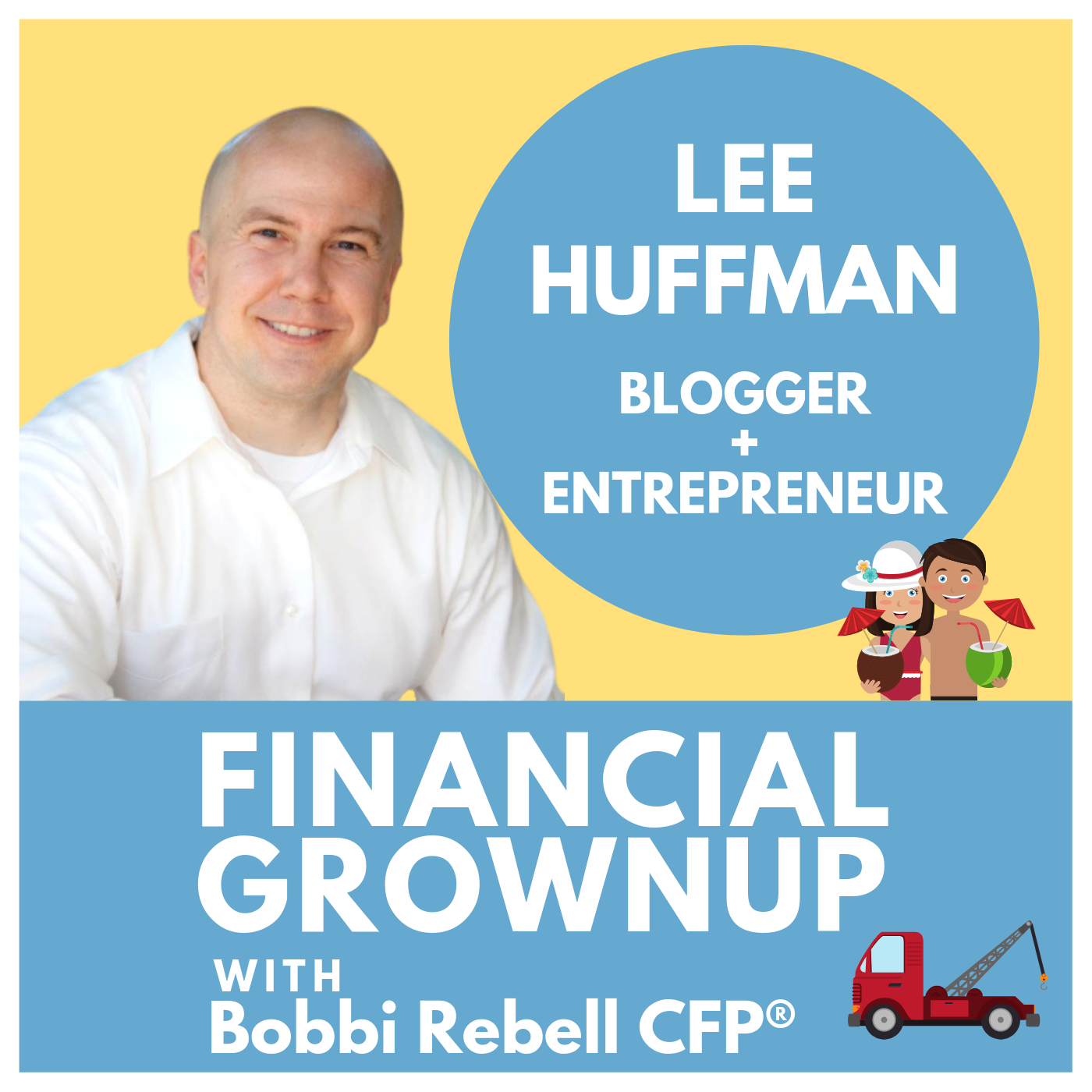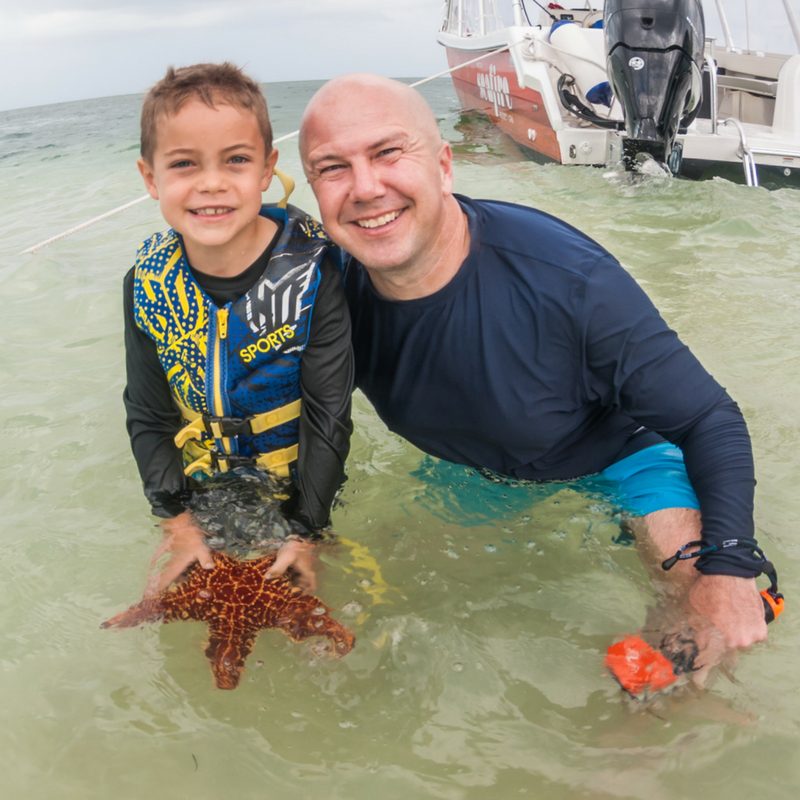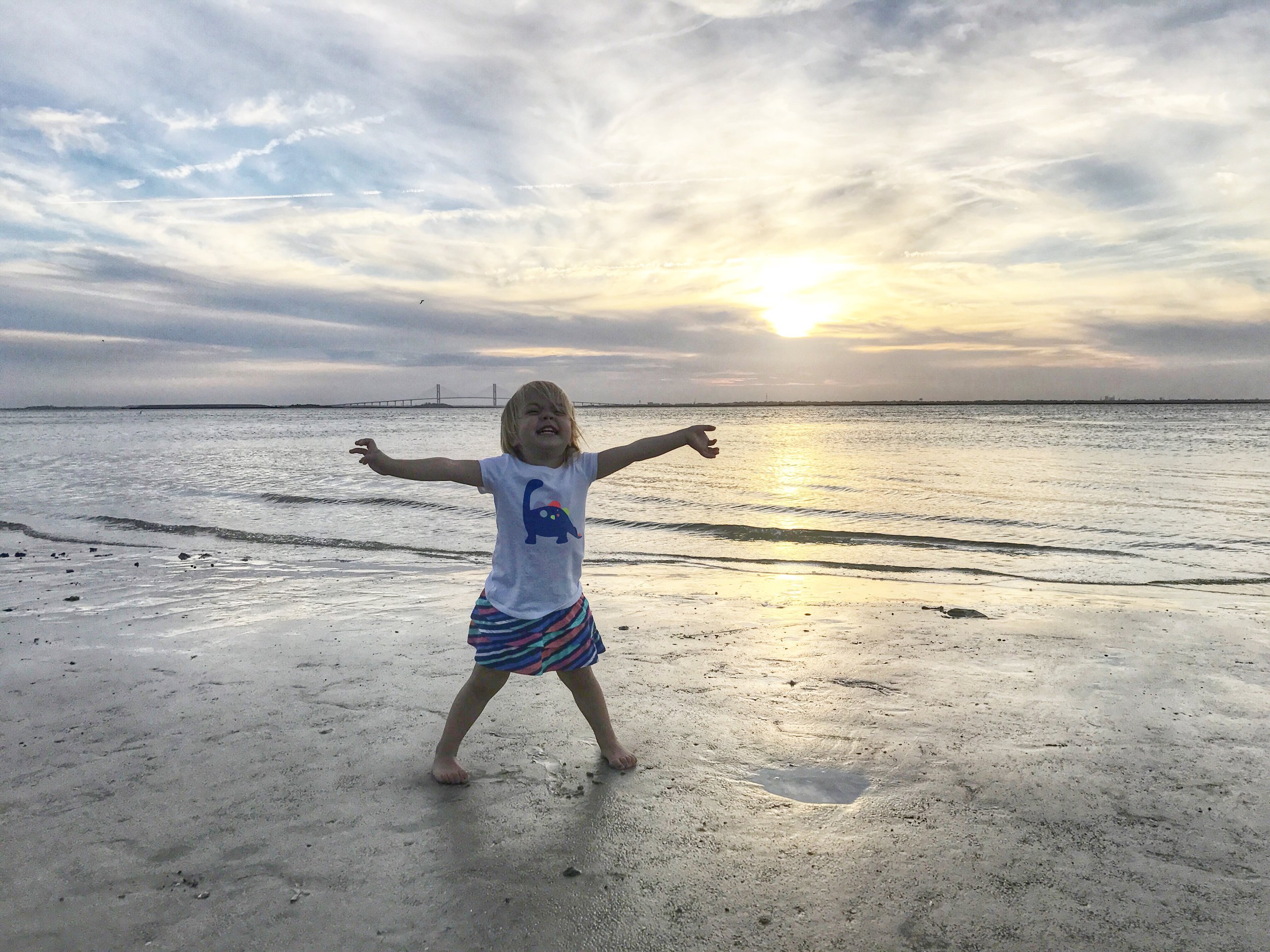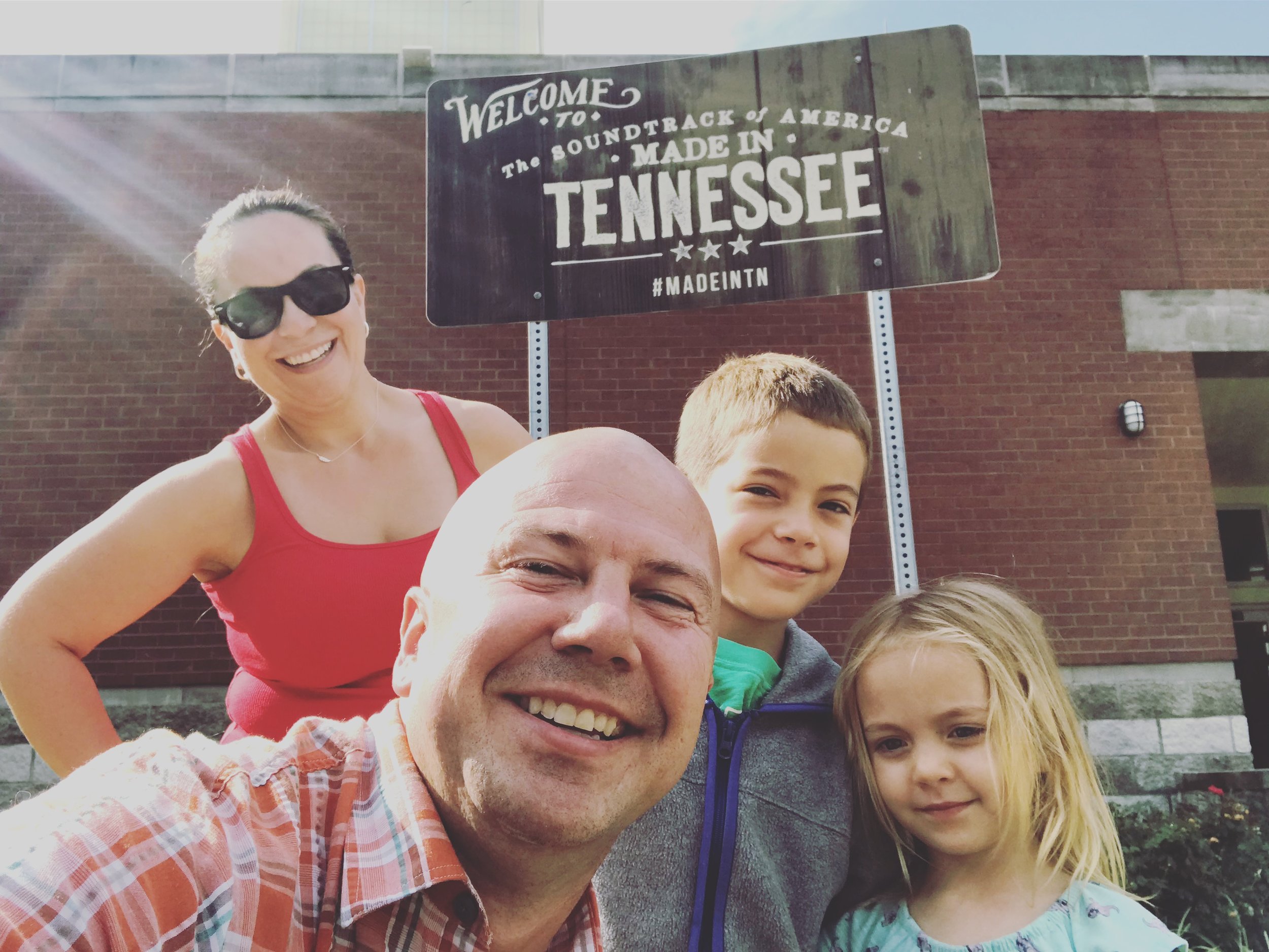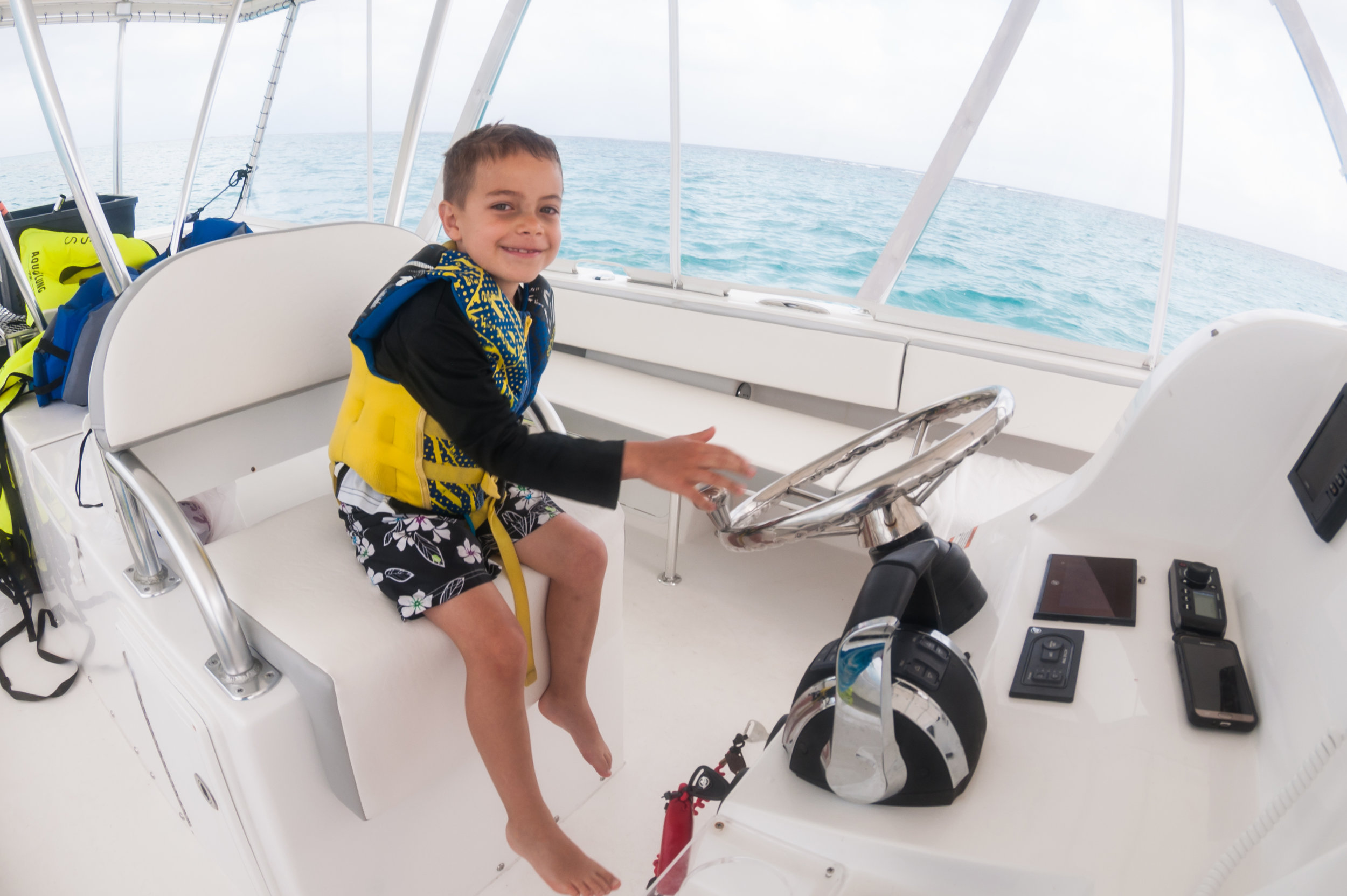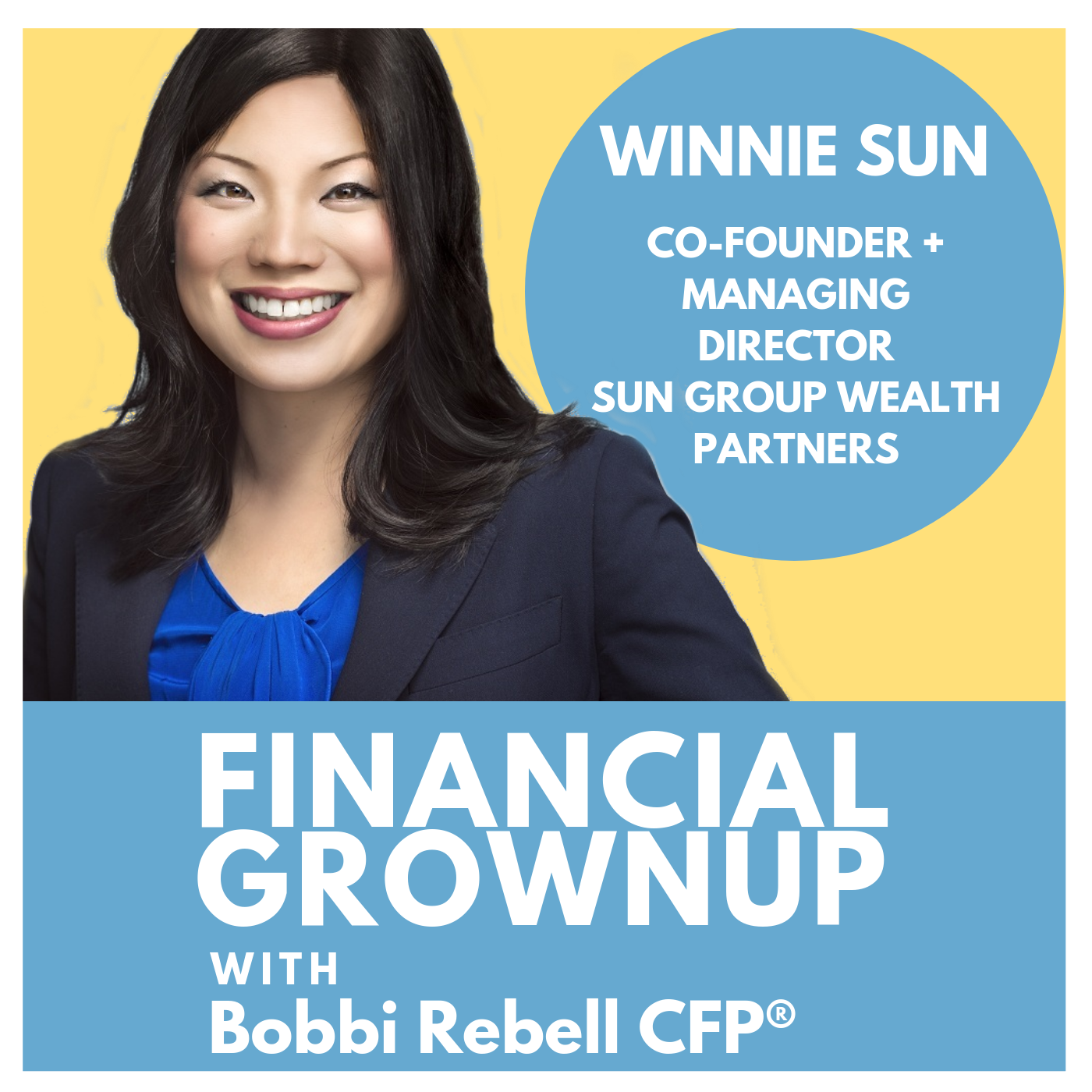Transcription
Paula Pant:
Never delay gratification. I hate the concept of delayed gratification, because if you get into this mindset of, "Oh, my life is going to suck now so that it can be better later," well, later is just going to be disappointing.
Bobbi Rebell:
You're listening to Financial Grownup with me, Certified Financial Planner, Bobbi Rebell, author of How To Be a Financial Grownup. And you know what? Being a grownup is really hard, especially when it comes to money. But it's okay, we're going to get there together. I'm going to bring you one money story from a financial grownup, one lesson, and then my take on how you can make it your own. We got this.
Bobbi Rebell:
Hey friends, let's talk about travel and seeing the world. Authentic travel within a budget, which is not the same as budget travel. One of the top reasons people want to have financial resources is to travel, and that is something a young Paula Pant, the force behind the Afford Anything website and podcast, wanted to do.
Bobbi Rebell:
Rather than do it through her school, she decided to explore the world on her own terms and her own budget. Her plan, make it a game. Here is Paula Pant. Paula Pant, you are a financial grownup. I'm so excited to have you on the podcast.
Paula Pant:
I am excited to be here, and I don't think I've ever been called a grownup before.
Bobbi Rebell:
You are very much a grownup. Oh my gosh, you have a website and a podcast called Afford Anything, which is sort of everyone's financial fantasy, because we all wish we could afford anything. But as you say, not necessarily all at the same time, right?
Paula Pant:
Exactly. You can afford anything, but not everything.
Bobbi Rebell:
That's the best tagline, I love it. All right, so you brought with you a story that has to do with your love of travel, which makes total sense to me, because I love following your Instagram and all of your fantastic photos of you on all of your various adventures, but you didn't always have the money to fund those adventures.
Paula Pant:
That is totally true. Travel has always been a passion of mine. When I was in college, I really wanted to study abroad, but those programs were prohibitively expensive, like 15 to 20 grand for a single semester. I thought about it and I realized, "I don't really want to study, I just want to go abroad."
Paula Pant:
I realized that if I graduated, I worked, I saved up some money, and then I just went off on my own, if I DIY'd it, so to speak, I could do it for like a much cheaper price tag.
Bobbi Rebell:
Without the university as a middleman, basically.
Paula Pant:
Exactly. So that's exactly what I did. I graduated, I started working. Like you, I was a journalist. I became an entry level newspaper reporter at a very small paper.
Bobbi Rebell:
Where?
Paula Pant:
In Boulder, Colorado. The paper was called the Colorado Daily. It was owned by E.W. Scripps, so it was a part of the Scripps family, but it was the smallest paper, I think, in the Scripps family, and we had a circulation of 40,000. My salary, my starting salary, was $21,000 and this was in 2005.
Bobbi Rebell:
Ouch.
Paula Pant:
So adjusted for inflation, that's like still pretty close to 21,000. I think I did the inflation adjustment, and that's $26,000 per year in today's dollars.
Bobbi Rebell:
Yeah, we actually have not had that much inflation is the truth of it.
Paula Pant:
Yeah, exactly. Between 2005 and now-
Bobbi Rebell:
The last few years, we really didn't. Thank you, Fed. That's changing, but anyway.
Paula Pant:
So yeah, so I made a starting salary of 21,000 in 2005, and then in 2008, which was when I quit that job, I was earning 31,000 at the time, so that was the highest amount that I made during that three year period, and yet during those three years, I, because I was so interested in traveling, I was saving money as much as I could. In order to do that, I did a couple of things. Number one, was I had a side hustle, and I saved all of the money that came in from that side hustle.
Bobbi Rebell:
What was the side hustle?
Paula Pant:
Freelance writing. I freelance wrote for both websites and magazines.
Bobbi Rebell:
And they allowed you to do that? That's nice.
Paula Pant:
Oh yeah, yeah. There was no restriction.
Bobbi Rebell:
Nice.
Paula Pant:
My paper had no restriction against me taking on any outside work. I think they probably knew that we all had to.
Bobbi Rebell:
Yeah, I guess they got away with paying you so little because they knew that.
Paula Pant:
Yeah.
Bobbi Rebell:
So anyway, so okay. So you saved a lot from the side hustle, but still. What else did you do?
Paula Pant:
Because so much of finance is behavioral, so much of it is psychological, I would find ways to spend just a little bit less than I otherwise would. For example, I would go to the grocery store and I'd walk around the store, and I'd fill the cart with whatever was on my list, and then at that last moment before going to the checkout aisle, I would take a look at my cart, and I would find two or three things to put back.
Paula Pant:
Orange juice, for example, you know? Because we don't need, quote unquote, "need," orange juice. You can have water and fresh fruit. Or like potato chips, or Oreo cookies, or whatever. I would pick a couple of things, I'd put them back, and then I would figure out how much money I had shaved off my grocery bill by virtue of doing so, and I would literally pull that money out of my wallet and stick it into an envelope that I kept in the glove compartment of my car.
Bobbi Rebell:
Brilliant, I love it.
Paula Pant:
Yeah, so just little things like that forced me to save money, and it kind of turned it into a game a little bit. If you think about a big goal like saving $25,000, that can seem daunting. But if you think about, "All right, I'm at the grocery store. How can I shave 10 bucks off of this trip?" and you do that consistently over time, A, it's fun, because it's a little bit of a game. It's a bit of almost like a detective ... not a detective, sleuth thing, that's not exactly the right analogy, but you know what I mean. It's like-
Bobbi Rebell:
Yeah.
Paula Pant:
Yeah, it's a kind of challenge.
Bobbi Rebell:
How much did you save in those years, if you have kind of an estimate of how much you saved doing those kinds of things, and give us some travel highlights, where you went.
Paula Pant:
In total during those three years, I saved $25,000.
Bobbi Rebell:
On a salary of 31,000 at most.
Paula Pant:
Exactly. And again, I'll emphasize that I was freelancing during the evenings and weekends, and everything that I made from freelancing after taxes went into my travel savings, so that was where the bulk of those savings came from.
Bobbi Rebell:
And where did you travel?
Paula Pant:
I flew at first to Egypt, and I spent six weeks in Egypt. From there to Israel, and then from there I went to Southeast Asia where the dollar exchange rate really worked in my favor. Hanging out in places like Cambodia, Laos, Vietnam, places that just have a much lower cost of living, and where the U.S. dollar goes a lot further. That was a big part of how I was able to travel.
Paula Pant:
During that time, I lived on a budget of $1,000 a month, which again, if you're traveling slowly, like if you're not moving around very often, so you're saving money on transit costs, and you're eating local food, you're not going to restaurants, like you're eating street cart food, or things like that, and you're not drinking much alcohol, if any, that's how you can really make your money stretch quite a ways.
Bobbi Rebell:
What is the lesson for our listeners? I mean, obviously we want to be traveling kind of like locals, I guess, is live like locals, don't just stick to the resorts and the resort food, and the hotels and all that stuff, right?
Paula Pant:
Yeah, exactly. Have a more authentic experience. If you're going to go to all of the trouble of going all the way out to Myanmar, then why would you stay at a four star hotel, if instead you could have a very authentic conversation with somebody there who has just a roadside, street side little ... I can't even call it a café, that's too fancy of a word. Just a little tin ... you know, a couple of pieces of corrugated tin under which they have a little stove through which they can cook you some food.
Paula Pant:
It's a much more real experience. It's just much more authentic, and the fact that it saves money is I think, also a bonus. But don't do everything for the sake of saving money, do it because it gives you an authentic experience.
Bobbi Rebell:
Give us a money tip, something that people can put to work right away. Maybe let's stick to the gamification theme, because that's fun. I like playing money games, because you don't even feel bad when you're saving money. It actually makes you feel good, like you're winning.
Paula Pant:
Exactly. A big part of my philosophy is never delay gratification. I hate the concept of delayed gratification, because if you get into this mindset of, "Oh, my life is going to suck now so that it can be better later," well, later is just going to be disappointing.
Paula Pant:
I'm a big fan of when you're saving money, gamify it, have fun with it. When I tell the story of going to a grocery store, and then right before checkout putting the orange juice back, that was not an act of deprivation, that was a fun challenge, like it was a game that allowed me to save. You could think of it as like scoring points on the leaderboard.
Paula Pant:
I continue to do the same thing today. I want to put as much money into investments today as I possibly can. My core investing strategy is of course, max out every retirement account that I'm eligible to contribute to. Those are like my core strategies, and through those, I put money in an index funds. On top of that, I have this app, it's called Robinhood, that allows you to buy individual stocks fee free.
Paula Pant:
Through Robinhood, I will put extra money into individual stock picking. Now, this is not my core investment strategy whatsoever. This is just extra money. It's money I otherwise would have spent on beer and shoes that instead, I kind of think of making it an in-app purchase in a game. I'm playing this game, and if my budget to play this game is $100 a month, that's the cost of like maybe a fun night out.
Paula Pant:
So for me, instead of having that quote unquote, "Fun night out on the town," I put that money into a game that I'm playing on my phone, and I'm buying some individual stocks that I think are kind of fun. Well, that's a way to put more money into investments than I otherwise would. So that's my money tip, is gamify it.
Bobbi Rebell:
Are there other apps that you like to incorporate that are also kind of on the game theme?
Paula Pant:
Sure, yeah. There's an app called Digit, and that's more of an automated system, so you link it up to your bank account, and it will divert really small sums of money, like three bucks here, four bucks there, into a separate account that then accumulates into a pretty substantial amount of savings over time. That's kind of a fun little automated, gamey sort of way to save more, to hide some savings from yourself.
Paula Pant:
There's another one called Acorns that rounds up every purchase that you make, so if you buy something for $7.36, it will round that up to eight bucks, and put the change into a separate account. It's like another way to gamify it a little bit. Any way that you can take care of the margins in a way that's fun, it's a way to make compounding work in your favor.
Bobbi Rebell:
Oh, great. Paula Pant, you are so much fun. Where can people find out more about you, and follow you, and of course, hear more about your podcast Afford Anything?
Paula Pant:
Sure, well as you mentioned, the podcast is called Afford Anything, and you can find it wherever finer podcasts are sold. So yeah, just head to your favorite podcast player, whether it's Apple, or Overcast, or Stitcher, and just search for the Afford Anything podcast. Then you can also find me on the web at affordanything.com.
Bobbi Rebell:
And your social media handles?
Paula Pant:
Oh, on Twitter I am @AffordAnything. On Facebook I am Afford Anything, and on Instagram I've broken the pattern. Instagram I'm @PaulaPant, so that's P-A-U-L-A P-A-N-T.
Bobbi Rebell:
Putting yourself out there, Paula Pant. Thank you so much. You're so wonderful, and thank you for coming on.
Paula Pant:
Oh, thank you for having me.
Bobbi Rebell:
What would you take out of your grocery cart to save a little money? I know I have a bad habit of throwing extra things into the cart that I was not originally planning on buying, except unlike Paula, I usually don't take them out.
Bobbi Rebell:
All right, let's do Financial Grownup tip number one, listen to Paula. Gamification of good money habits works. Money is psychological, and little wins can inspire us to keep going when we get that positive reinforcement. You can go totally retro and just put your spare change in a jar and watch it add up, or you can use apps like Paula mentioned, including Acorns, Digit, and Robinhood.
Bobbi Rebell:
Other names to help you save and feel like you're playing a game and reward good money habits include Qapital, that's with a Q, Qapital. You get rewarded for things like working out. SmartyPig, which helps you set up little piggy banks for different things. By the way, just so you guys know, I have no financial affiliation at this time with any of those names, and I will always let you know if I do.
Bobbi Rebell:
Financial Grownup tip number two, be strategic with your travel, and do what's right for you. I am not a big fan of street food the way that Paula is, and I don't want everyone to feel like they have to travel quite that lean, but if you do want to go the higher end route, put the time in to looking into what the right resources are before you put your money in.
Bobbi Rebell:
I love the Points Guy blog, for example. There are great travel deals, and ideas, and even things at the higher end to help you save money. Another website for deals is Scott's Cheap Flights. If you are willing to wait close to your trip, or in some cases, and I've done this, when you're already on your trip, I've had some great experiences with the app Hotel Tonight. I also think there is great value in literally asking friends, and neighbors, and even virtual friends in Facebook groups that have something in common with you, for their recommendations. Happy travels.
Bobbi Rebell:
Thank you for listening to this episode of Financial Grownup. I truly appreciate everyone who has subscribed, rated, reviewed the podcast and all that good stuff, and thank you in advance to any of you who will now take the time to review it on iTunes or Apple Podcasts, as it is now known.
Bobbi Rebell:
I want to hear from you guys. Follow me on social media @BobbiRebell on Twitter, BobbiRebell1 on Instagram. Leave me comments as well. Go to my website, sign up for my newsletter, so I can keep you posted on everything going on with the show. Paula's story has inspired me to start traveling more, so maybe send me some suggestions.
Bobbi Rebell:
Where should I go? Not just for business. If she's inspired you, let me know that as well. Where are you guys traveling? I hope you got some great takeaways from Paula. I certainly did, as you heard, and that we all got one step closer to being financial grownups. Financial Grownup with Bobbi Rebell is edited and produced by Steve Stewart, and is a BRK Media production.



